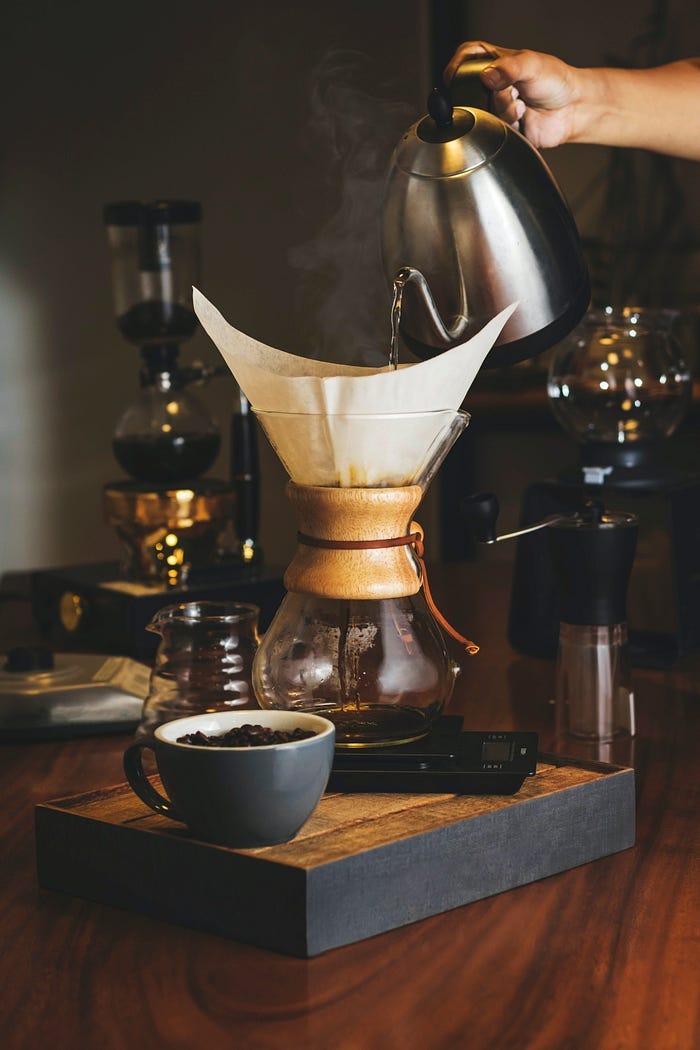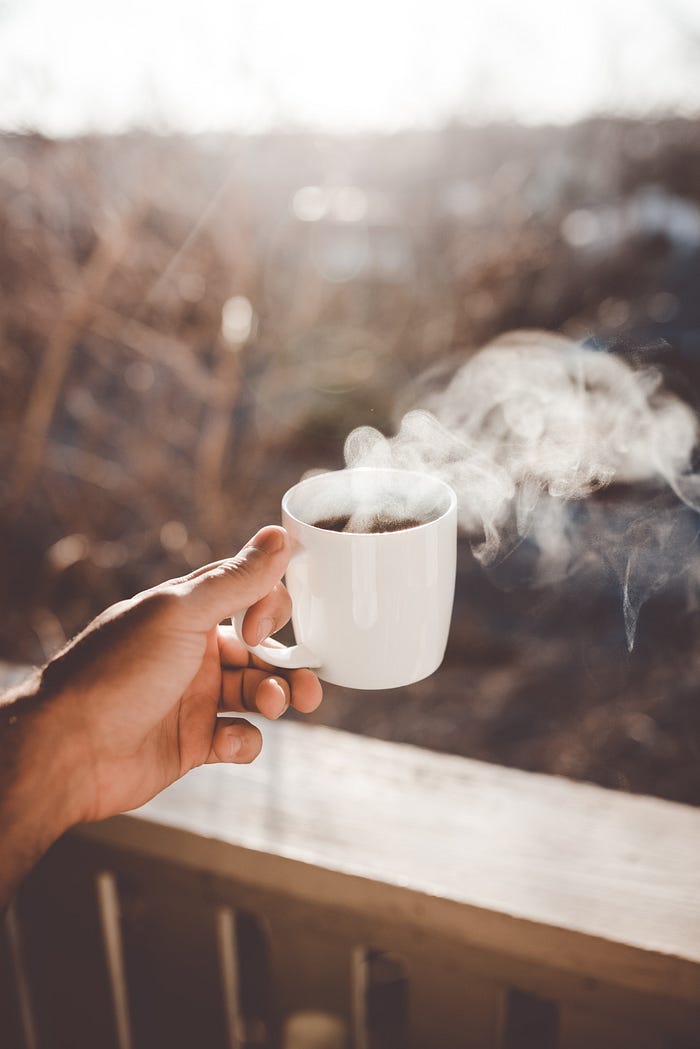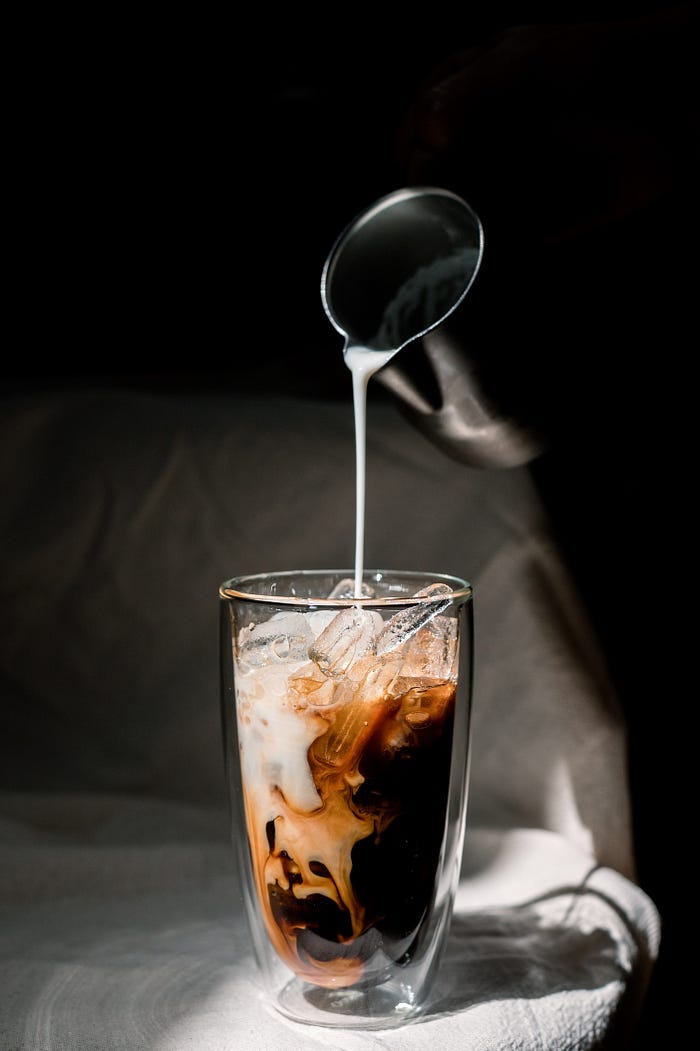The Real Price of Coffee: An Exploitative Guilty Pleasure
I’m a coffee lover and a former barista. Mea culpa.

We’ve all got guilty pleasures. Vices and temptations, things that we know are bad for us but we can’t help loving anyway.
For some, it’s chocolate, candy and all things sugary. That’s my partner — he’s adamant that our wedding is a chance for ‘the best cake of our lives’ and he’ll die on that hill.
For others, their vice may be a fine wine or a good craft beer. Some love a quality Cuban cigar, or other smoked or eaten substances that may or may not be legal where you live.
I’m a gamer, a foodie, and a lover of incense and scented candles — they hit my lungs like a truck and make me cough, but I love the scents!
But by far, my biggest vice is caffeine.
I’ve been drinking tea since I was three years old. I stumbled upon the magic of a cup of hot tea when I was taken to a family gathering, saw all of the adults drinking it, and demanded a mug of my own.
My family laughed, thinking I wouldn’t like it.
Au contraire.
I hated coffee until I was about sixteen, but a chance encounter with a butter pecan-flavoured blend changed all that.
I swiftly came to appreciate the nuances of taste and mouthfeel, much as one comes to appreciate fine wine.
Subsequently, I got my first job at a coffee shop near my house. I loved it. I learned so much about coffee blends, the different roasts, and how to tell them apart by look and taste.
I learned the science of acidity and caffeine levels, even about the chemistry of tannins and why dairy reduces that bitter burnt aftertaste.
The smell of roasting coffee beans — a fixture of the downtown area of the city I live in, thanks to a café that has its own roaster — is enough to arrest my attention until I acquire a cup of deliciously addictive bean water.
My partner hates coffee, but he puts up with my caffeine addiction with admirable patience anyway. The first time I came over to his place, he made sure to have a box of chai waiting for me in the cupboard. He even got a little pour-over coffee pot so I could have my fix when I visit.
I love coffee and tea. It was a surefire way to win me over.
Yes, caffeine is my vice, and coffee is the first thing I reach for every morning when I’m not on the road. I’m sipping my first cup of the day even now, enjoying the early morning quiet before everyone in my house wakes up.
It really sucks that the coffee industry is so awful.

As with most commercial industries these days, the coffee trade is rife with a combination of environmental destruction and human labour exploitation.
After water, coffee is the most consumed beverage in the world. In the eyes of the business-minded, that fact translates to some very hefty profits.
When big corporations start seeing dollar signs, it’s usually a safe bet that their vaunted concern for humanity will get relegated to the back seat. If you think labour violations are bad in the big cities, hold on to your hats.
You have no idea how bad the situation is on farms that work with high-value crops like coffee. Especially since coffee requires very specific growing conditions that can only be met in certain regions of the world.
When people struggle to put food on the table, desperation can lead to some pretty rash actions. Coffee is supremely profitable for the big corporate distributors, but the actual farmers and workers see a ridiculously low cut.
When you combine extreme poverty, low wages and long hours, what do you get? Unfortunately, it makes child labour far more likely. The entire family gets involved in the manual labour of farming, with school being a much lower priority than the daily struggle to survive.
I’ve written extensively about child labour before, and the harm it causes to exploited kids can be serious and long-lasting. It’s especially nasty in agricultural work, where growing children can be exposed to toxic pesticides and fertilizer.
That’s not even counting the hard physical work that takes a toll on developing bodies. Kids and young teens are more at risk of injury and heat stress than adults.
Robbing them of their education and time to rest and play can also cause severe stress and lifelong problems for children, locking kids into a lifetime of agricultural work and cutting other options off.
If all you know how to do is farm and you have no education or other marketable skills, there’s a very good chance that you’re going to stay on the farm when you grow up — especially if you’re from a poor family who can’t spare the money for college.
You’re a lot less likely to choose a different career path, even if you wish you could.
And sometimes, that isn’t even an option to begin with. Sometimes there aren’t any options at all.
In some areas, coffee growers are not working voluntarily. Human trafficking and slave labour is commonplace in the coffee industry. As I said, many of the workers simply don’t have many options for employment. That leaves them open to abuse.
When the other option is starvation, you’ll take whatever work you can get.

Beyond the issues of human trafficking and child labour — which is bad enough on its own — the coffee industry is also bad for the environment.
Coffee is nearly always grown as a monocrop. Monocrop farming is the practice of growing only one single product at a high volume, as opposed to growing multiple different crops in smaller quantities.
Major agriculture companies tend to grow monocrops, as it’s pretty profitable when you get a good harvest. But the practice comes with serious downsides, such as soil depletion, disease, and pest infestations.
Because soil depletion is such a big problem, monocrop cultivation requires a lot of land, especially when you’re growing tree-based crops that take years to reach maturity.
The soil degrades, the trees can’t produce as well, which means profit yields go down.
Then, while you build the soil back up there, you need to have saplings already in the process of growth. Forests are routinely cleared and cultivated to make up the shortfall.
With that in mind, it’s no surprise that as the coffee industry has grown, the rainforests of the world have shrunk. Rainforest loss has many causes to be sure, but agriculture is one of its bigger drivers.
With monocrop farming comes many side effects. Since you’re only growing one crop, you’re at risk of the pests that swarm that particular plant. Pesticide use is therefore very high, and it isn’t uncommon for chemical runoff to contaminate local soils and water sources.
As the soil gets depleted and chemical fertilizers are employed, the soil can become damaged. Many non-organic fertilizers use sodium nitrate as a nitrogen source, and that can destroy the microbiome of the earth.
It dries the soil out, reducing its ability to hold water — and that can not only be bad for the plants, but it also increases the risk of flooding and mudslides since the ground can no longer absorb heavy rainfall.
On top of that, when nitrogen runoff gets into the waterways, it becomes a poison. It not only renders the water unsafe for drinking, but it can feed an explosion of algae that can poison fish and other aquatic animals.
Our love affair with coffee is fueling a perfect storm. It’s like I said; when corporations see dollar signs, people suffer.

Now, I’m not chastising you for enjoying coffee. Like I said, I’m drinking a cup right now. I’ll probably have another one soon.
As with many issues that can be traced back to consumerism, the problem is not that we indulge in any particular thing. The problem is that the industry that supplies that thing is unregulated and corrupt.
There is nothing morally wrong with enjoying a cup of coffee. But we do need to acknowledge how that coffee gets to our shops, and how that process contributes to exploitation, generational poverty and ecological damage.
With climate change worsening year after year, the growing conditions of the world’s coffee plantations are changing. There is a looming coffee shortage on the horizon, and prices are going to keep getting higher as the industry foists the costs of production onto customers like us.
All the while, the farmers who do the work will reap none of the benefits and only face more challenges.
If we want to keep enjoying our beverage of choice — and I, for one, certainly do — then it would be beneficial for everyone if the working conditions and agricultural practices of the farmers improved.
As long as the large corporate distributors are getting a huge payout, they have no incentive to push for that. Rather, they have every incentive to be as exploitative as possible.
Maximize profits, and minimize losses. Who cares who gets hurt? So long as they’re making dollars hand over fist, they won’t be shedding any tears.
As consumers, we need to demand greater accountability and sustainability in agriculture. We need to do our research and choose to support smaller brands, ones that pollute less and actually partner with their farmers instead of using them for cheap labour.
By being more informed and a lot more conscientious while we’re doing our shopping, we can push for change.
Solidarity wins.


I'm right there with you. I enjoy my morning coffee as much as anyone else. I've also been watching this issue in the news feeds for a few years and it's deplorable what these corporations are doing to people around the world. It's not just coffee but other commodities as well.
Add into this mix, as you pointed out, climate change, which is starting to affect coffee crops around the world. Some growers are shifting to other countries, with mixed results but, I can see a day when coffee might become a rare beverage that only the very rich can afford due to the beans scarcity. Much like a few other things we take for granted these days.